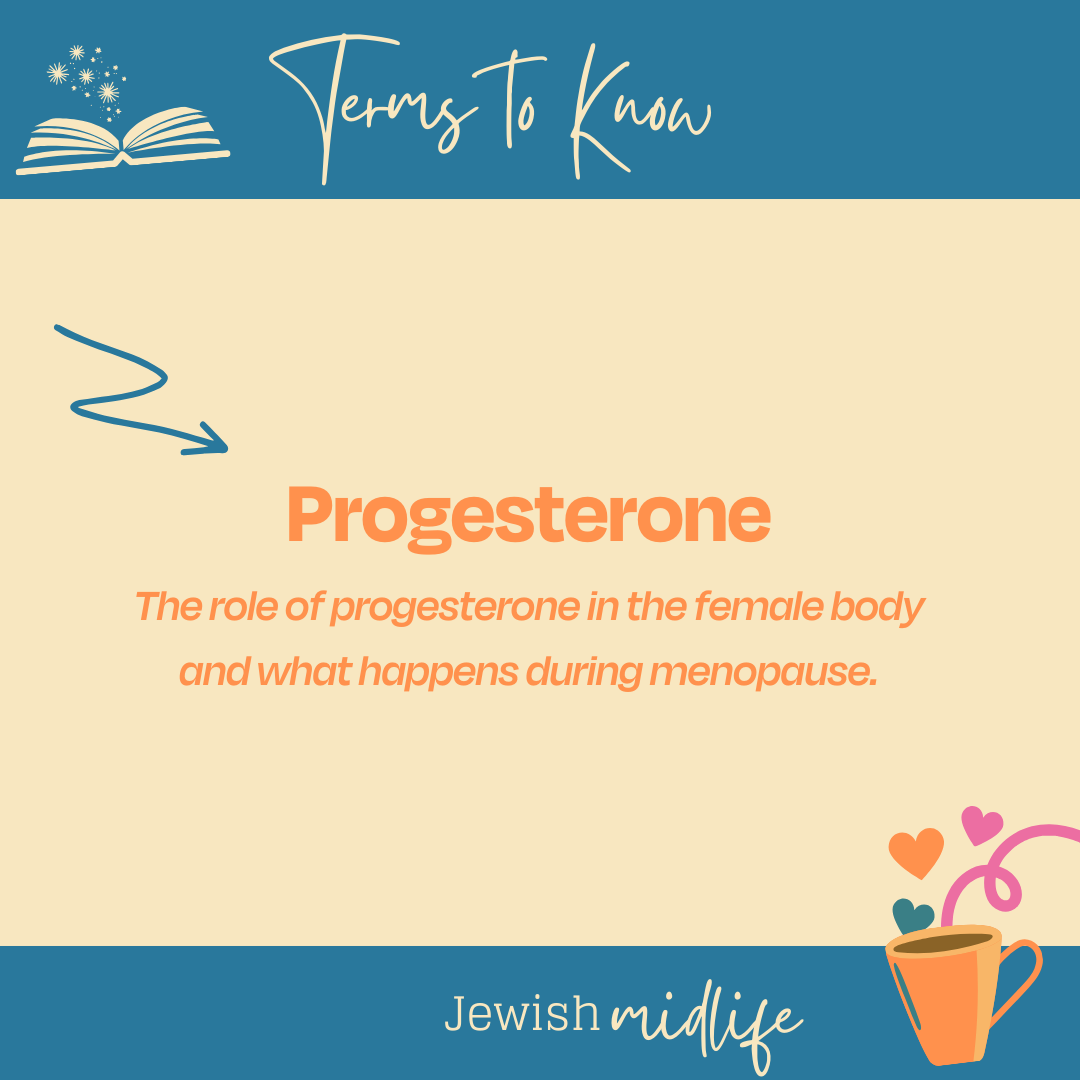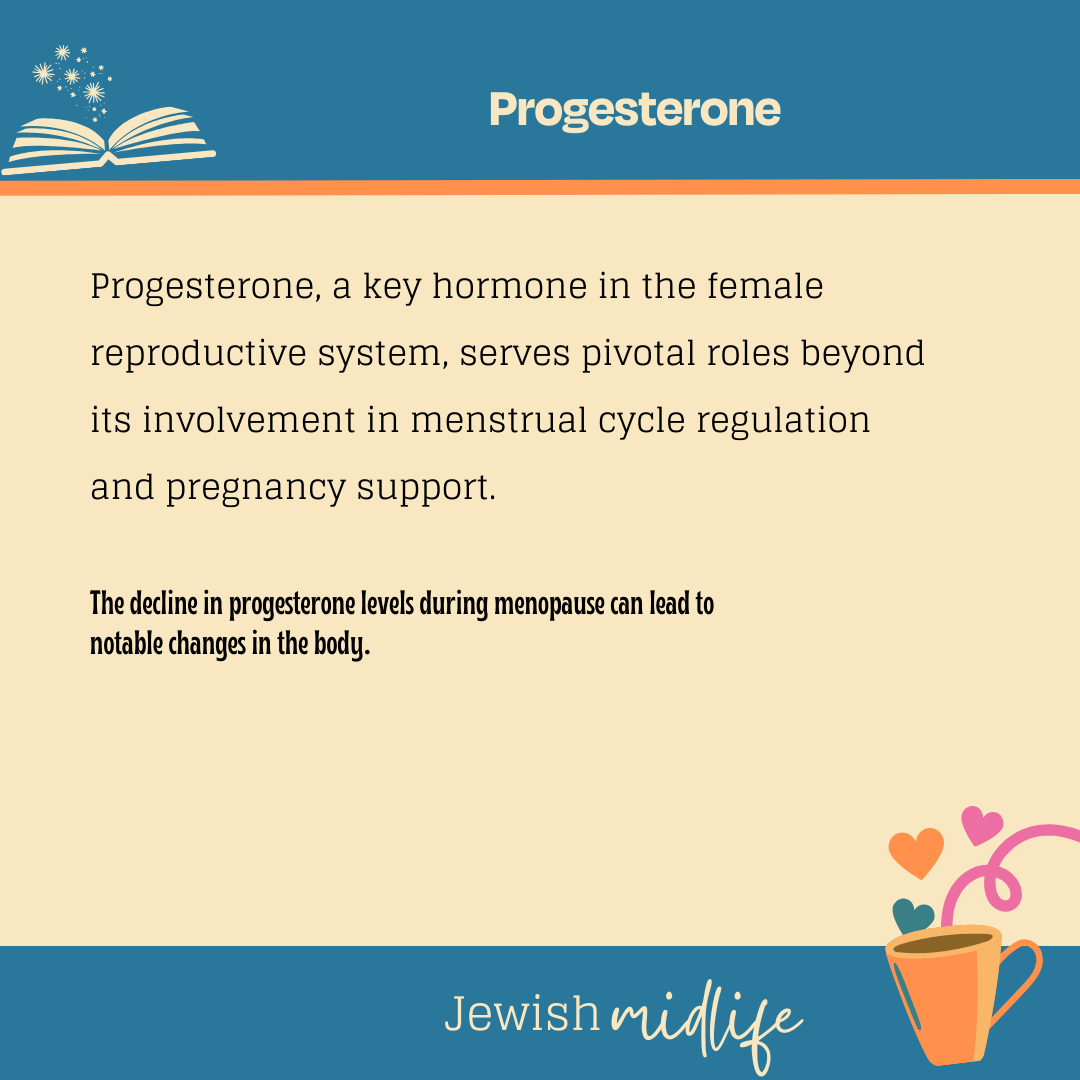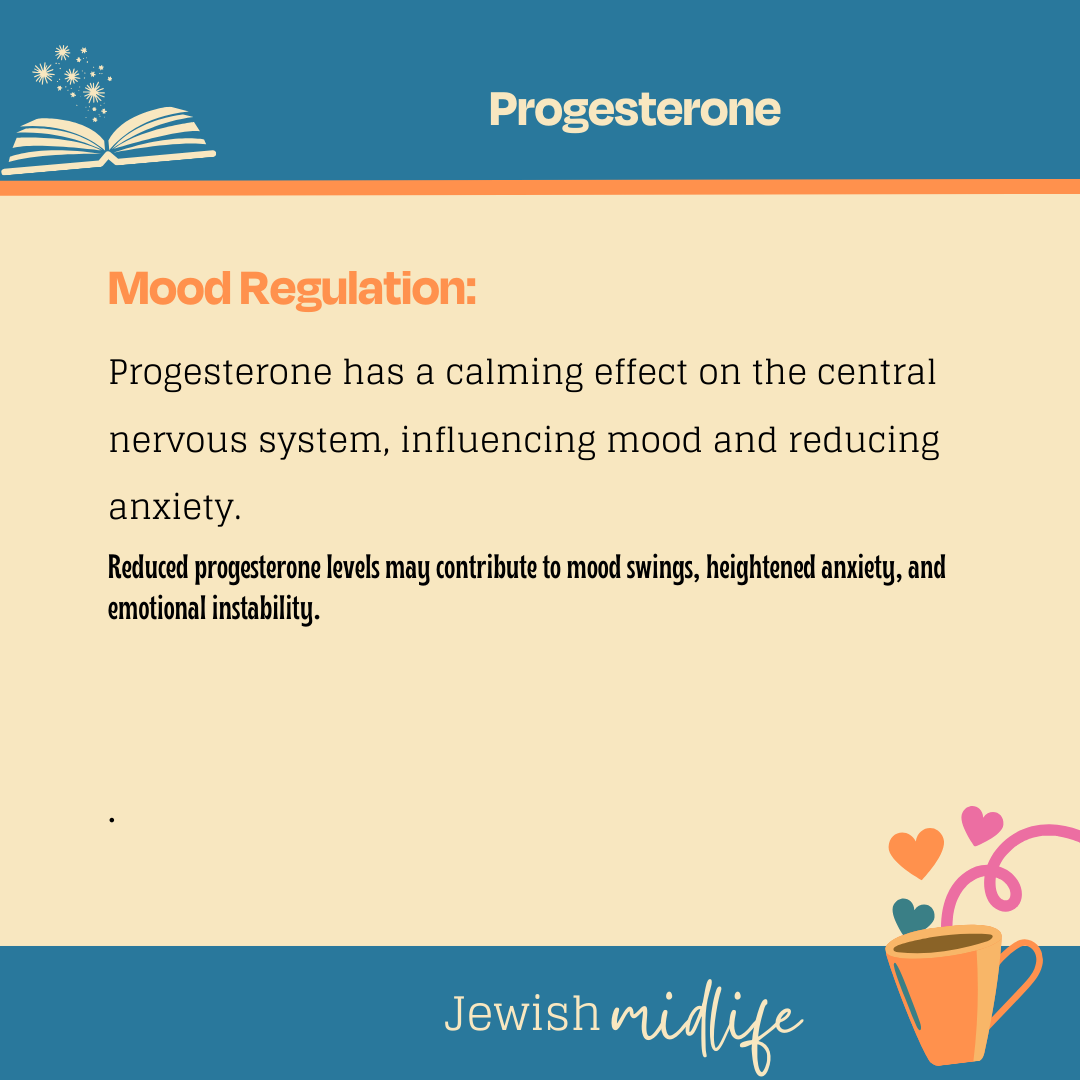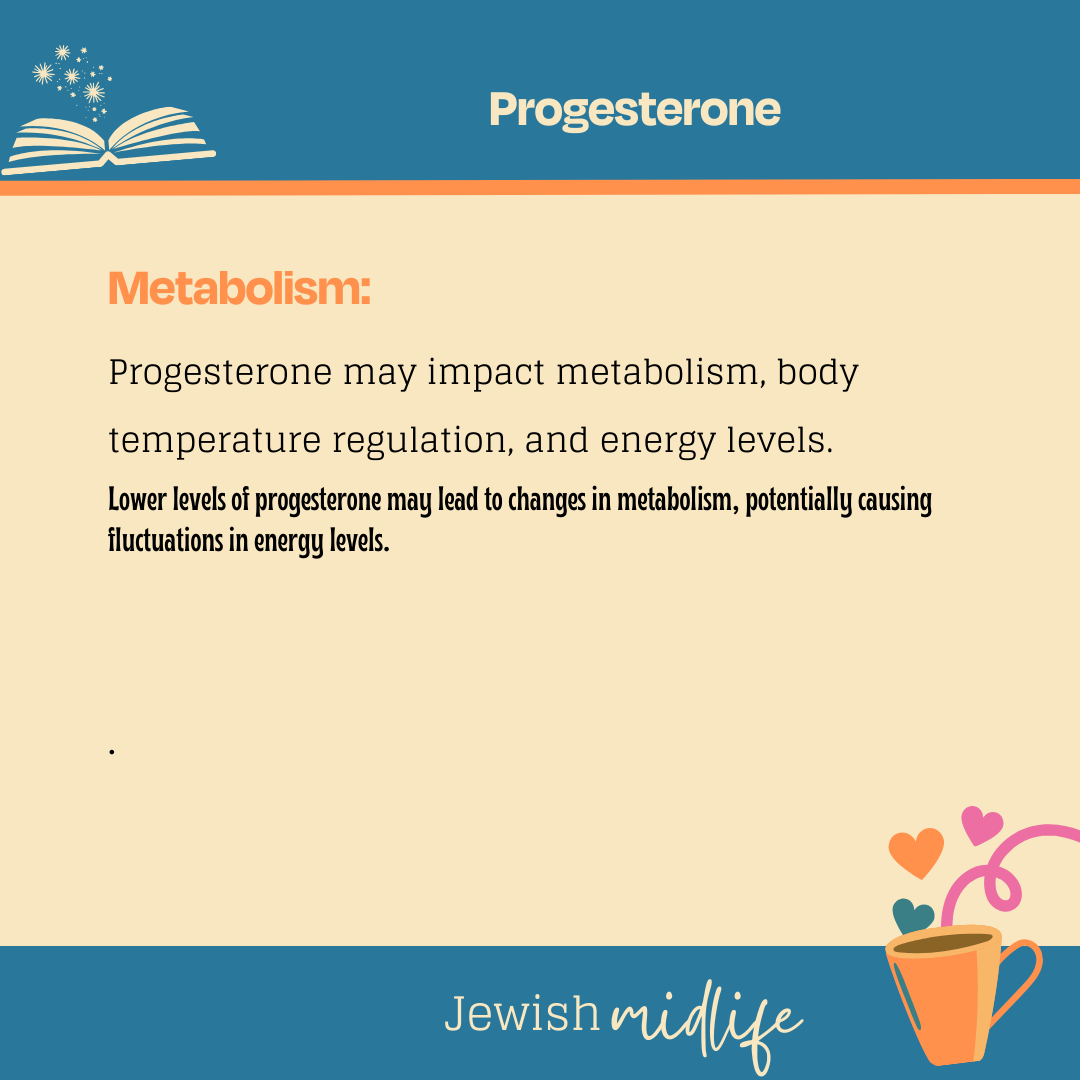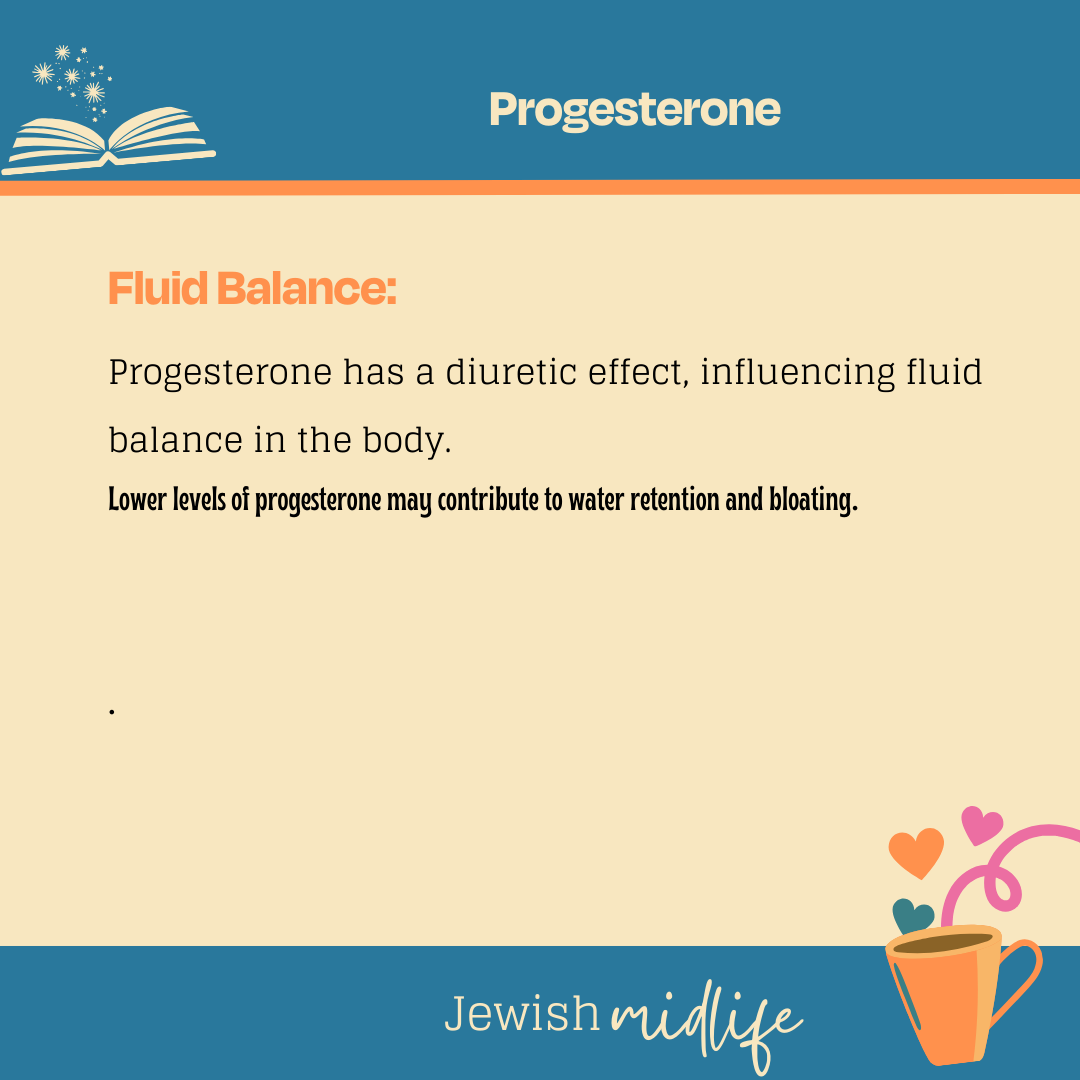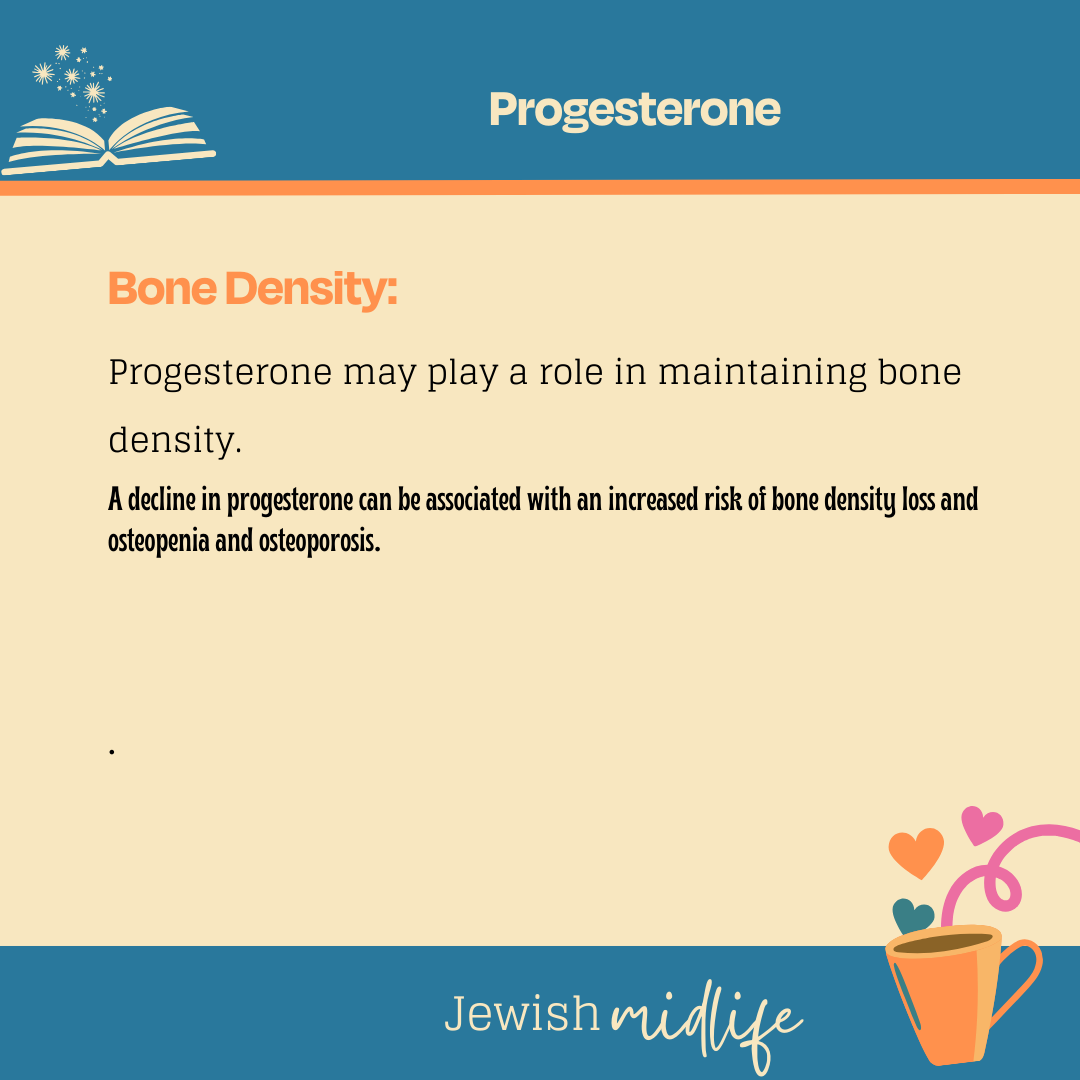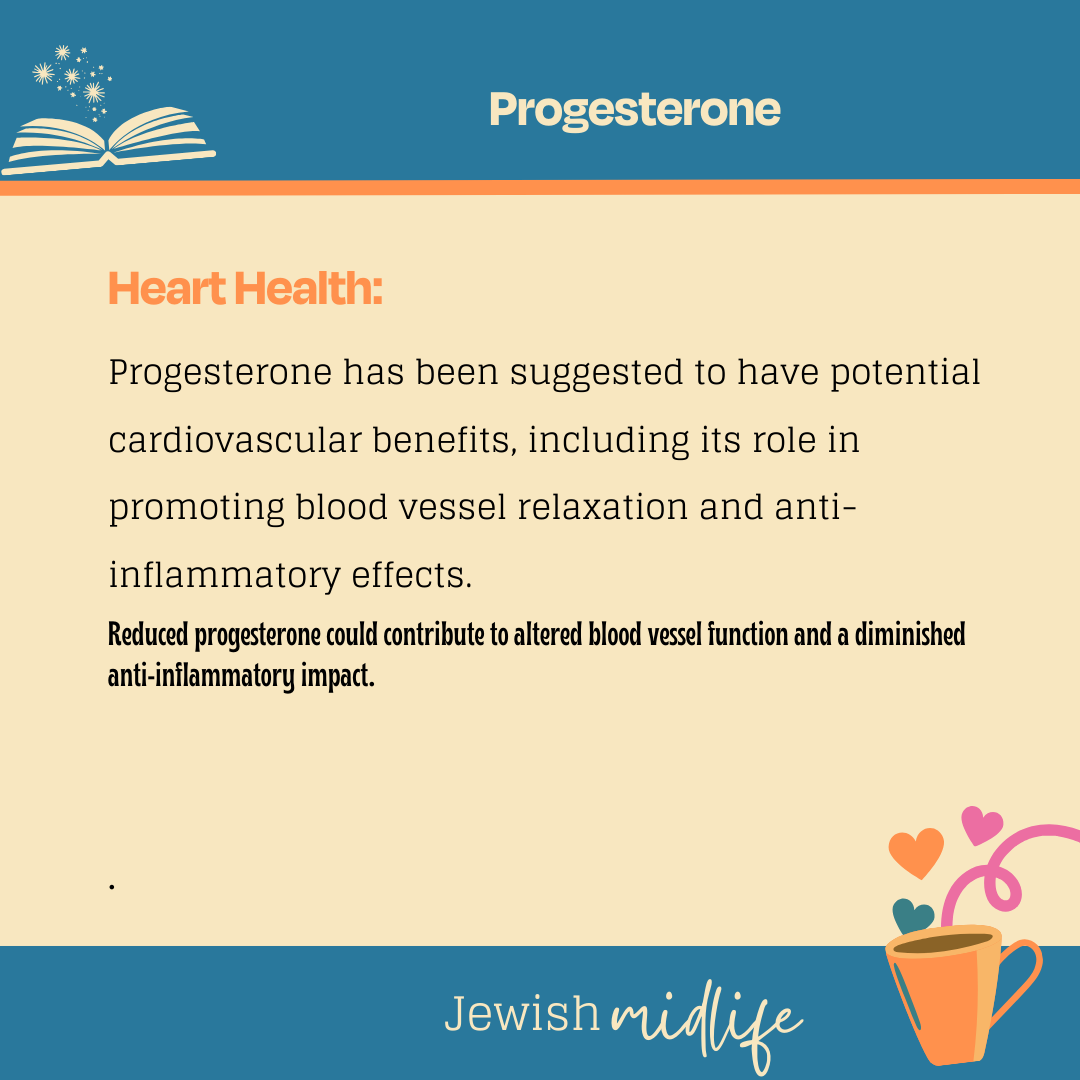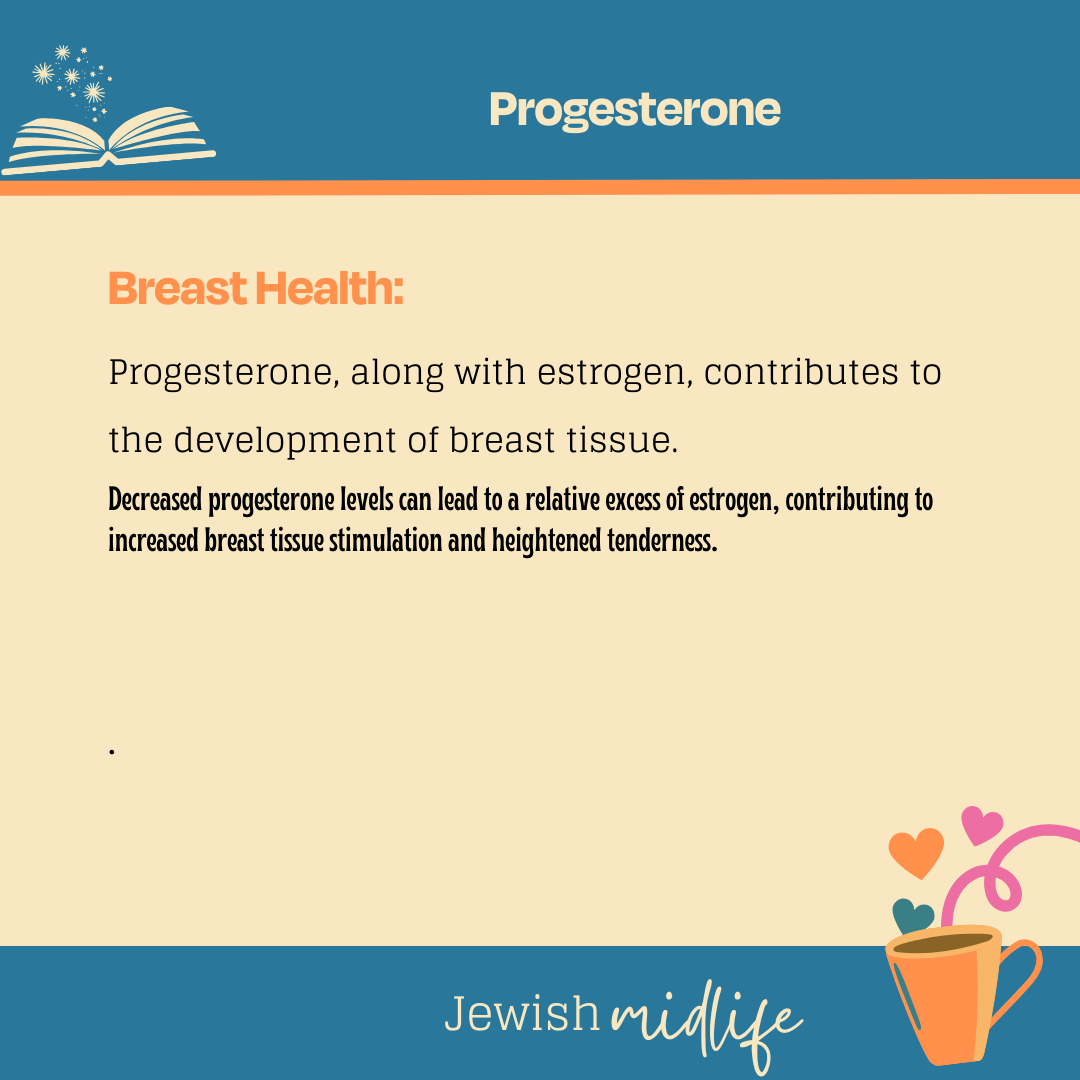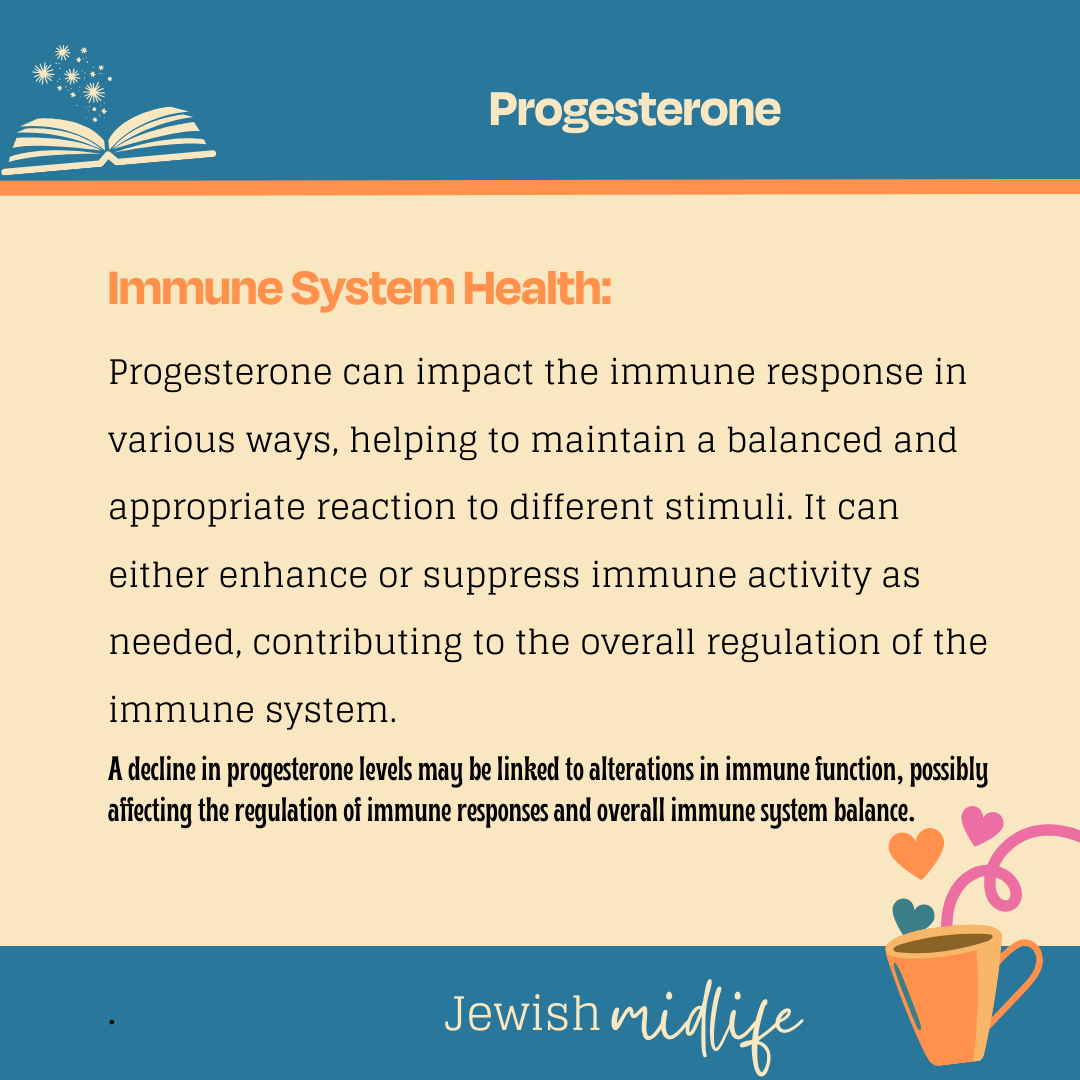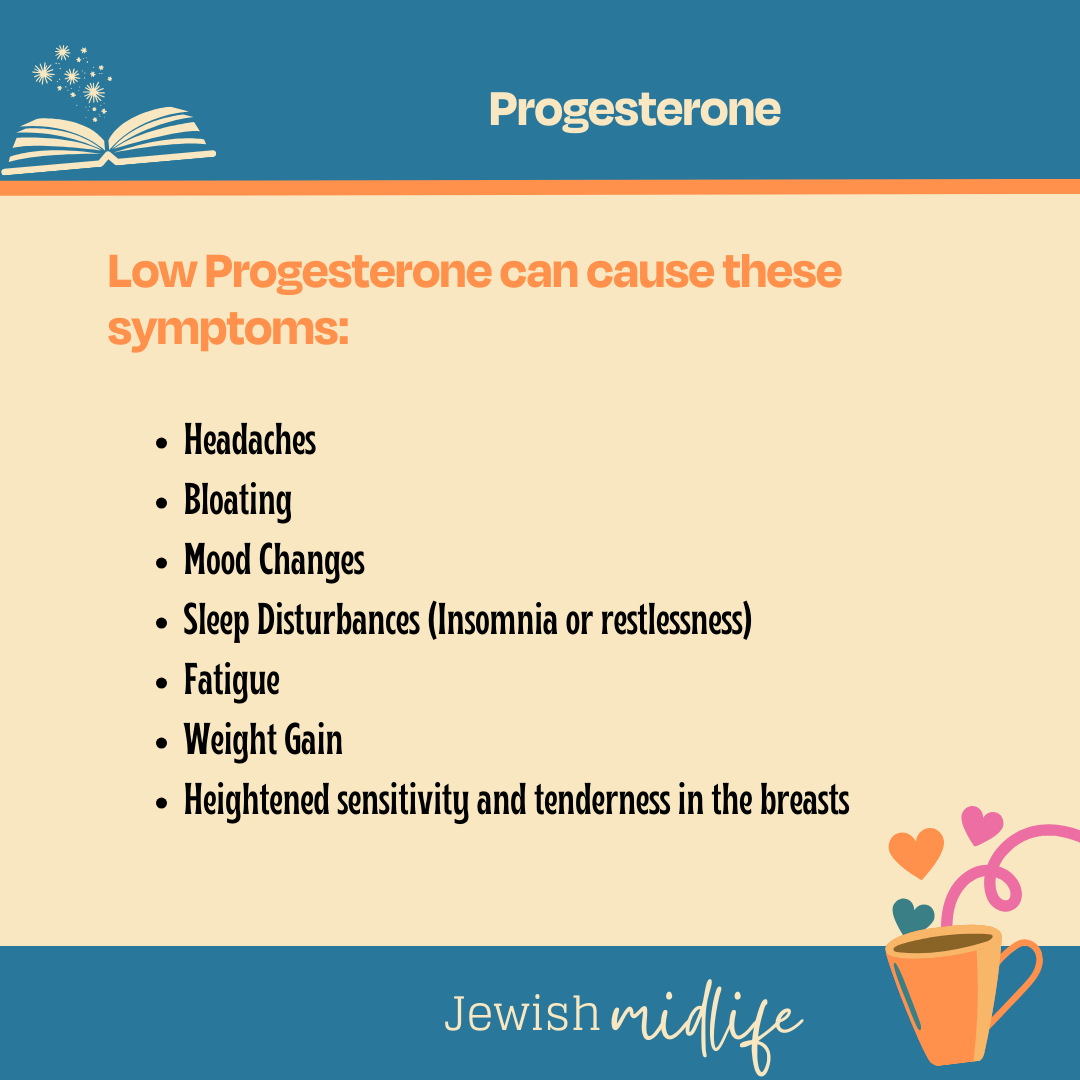Progesterone, a key hormone in the female reproductive system, serves pivotal roles beyond its involvement in menstrual cycle regulation and pregnancy support. The decline in progesterone levels during menopause can lead to notable changes in the body.
Mood Regulation: Progesterone has a calming effect on the central nervous system, influencing mood and reducing anxiety. Reduced progesterone levels may contribute to mood swings, heightened anxiety, and emotional instability.
Metabolism: Progesterone may impact metabolism, body temperature regulation, and energy levels. Lower levels of progesterone may lead to changes in metabolism, potentially causing fluctuations in energy levels.
Fluid Balance: Progesterone has a diuretic effect, influencing fluid balance in the body. Lower levels of progesterone may contribute to water retention and bloating.
Bone Density: Progesterone may play a role in maintaining bone density. A decline in progesterone can be associated with an increased risk of bone density loss and osteopenia and osteoporosis.
Heart Health: Progesterone has been suggested to have potential cardiovascular benefits, including its role in promoting blood vessel relaxation and anti-inflammatory effects. Reduced progesterone could contribute to altered blood vessel function and a diminished anti-inflammatory impact.
Breast Health: Progesterone, along with estrogen, contributes to the development of breast tissue. Decreased progesterone levels can lead to a relative excess of estrogen, contributing to increased breast tissue stimulation and heightened tenderness.
Immune System Health: Progesterone can impact the immune response in various ways, helping to maintain a balanced and appropriate reaction to different stimuli. It can either enhance or suppress immune activity as needed, contributing to the overall regulation of the immune system. A decline in progesterone levels may be linked to alterations in immune function, possibly affecting the regulation of immune responses and overall immune system balance.
Low Progesterone can cause these symptoms:
- Headaches
- Bloating
- Mood Changes
- Sleep Disturbances (Insomnia or restlessness)
- Fatigue
- Weight Gain
- Heightened sensitivity and tenderness in the breasts
.

